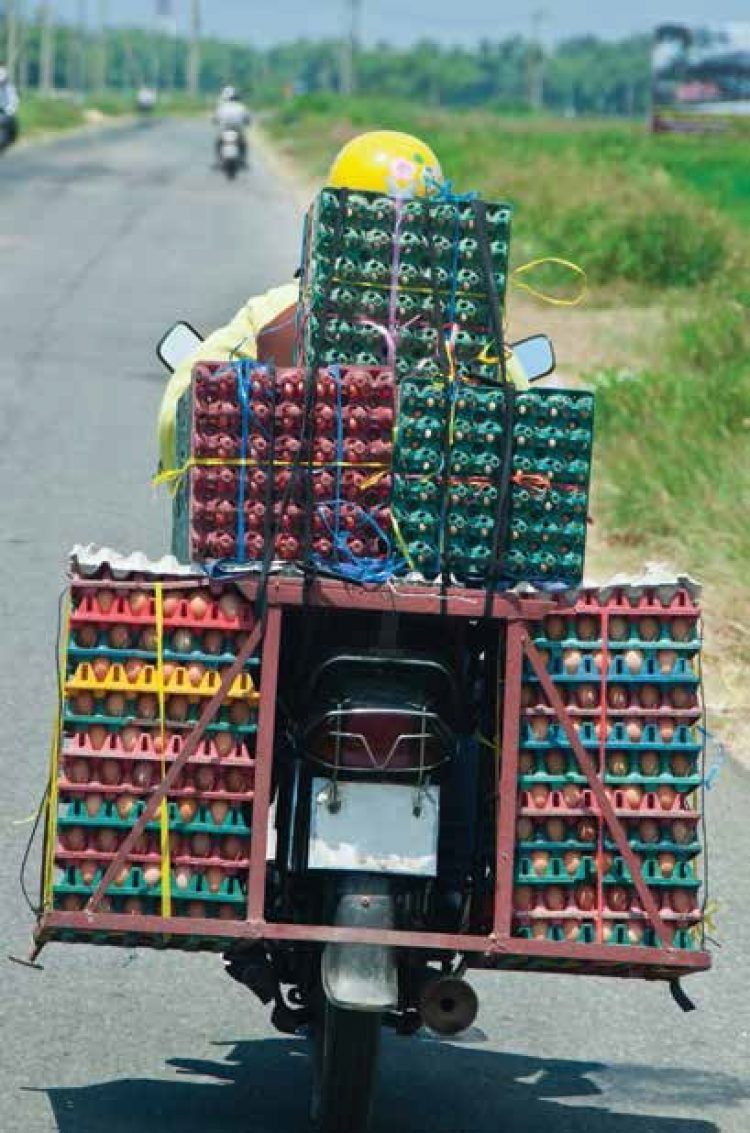Vietnam’s government sets policy for and against integrated resorts

Vietnam claims it wants to enlarge its family of integrated resorts from one to five, but government authorities keep using regulatory birth control to prevent expansion. Despite the contraception efforts, Vietnam’s attractive market continues to draw international suitors for casino licenses, since the government estimates its 90 million citizens spend close to $2 billion on gaming in foreign countries.
Citizens must play outside Vietnam thanks to the government’s primary IR prevention method: only foreign passport holders may enter gaming floors within the country, excluding all but a handful of Vietnam’s 90 million people. That bitter pill means the government’s investment requirement of $4 billion—equivalent to the cost of Wynn Cotai, or four times the investment requirement in Manila’s Entertainment City or South Korea’s Incheon Free Economic Zone—for each of its five designated integrated resort sites makes development financially unfeasible, industry experts say. The government is moving toward allowing local play on a limited basis, but even so, $4 billion IRs seem unlikely to bear profits in Vietnam.
Still, interest in creating gaming resorts in Vietnam grows. In May, Banyan Tree’s Laguna Kang Co resort issued a Request for Concepts for companies to develop and operate a gaming complex on its property north of Danang in central Vietnam’s Hue province. That’s not one of the areas the government has designated for casino development, but the owners reportedly think they can squeeze out a license anyway.
Down the coast in Quang Nam province, top Macau junket operator Suncity Group and Chow Tai Fook Enterprises joined investment firm VinaCapital in March to revive the Hoi An South IR project first announced in 2010. “The reported investment by Chow Tai Fook and Suncity Group shows the exciting potential of Vietnam as an integrated resort destination,” Colin Pine, general director of the local subsidiary of Asian Coast Development Ltd, developer of the Ho Tram Strip IR area to the south, says. Vietnam’s leadership might add that the investment commitment shows the wisdom of careful IR family planning.
Local officials indicate that Chow Tai Fook, headed by Hong Kong billionaire Cheng Yu-tung, has taken a majority stake in the project, exceeding the reported 20% share of VinaCapital’s original partner, Malaysia’s Genting Group, which pulled out in 2012. The reinvigorated project’s first phase will cost $500 million, including a hotel and golf course along with a casino that earlier reports indicated would include 90 gaming tables, to open in late 2018 or early 2019.
Hoi An South is at least the third prospective Asia-Pacific casino project for Chow Tai Fook. It’s a partner with Echo Entertainment bidding for a new casino in Brisbane and has signed a letter of intent for a $1.6 billion resort in South Korea’s developing IncheonIR cluster, another foreigners-only casino market. “Chow Tai Fook is trying to secure good locations in markets that allow gaming, even if they are foreigners-only,” Global Market Advisors Partner Andrew Klebanow observes. “Their goal is to build attractive resorts that offer an alternative to Macau and to demonstrate to the [host] government that they are willing to invest sizable amounts of capital into the region.”
Suncity cites multiple reasons for its interest in the Quang Nam project and in Vietnam. “It is the goal of Suncity group to diversify from being a gaming promoter to a casino operator with its own licensed casino and also to venture into non-gaming business, whether it is locally or overseas,” Suncity’s Marketing Strategy Department President YM Choong says. “Currently Suncity Group sees that it is the right timing and opportunity to invest in this country which is geographically an ideal location,” within three hours flight of key source markets. The project includes residential components that could enhance returns, he adds.
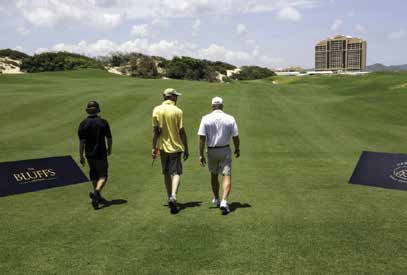
Quang Nam hosts a pair of UNESCO World Heritage sites, Hoi An’s Old Town dating to the 16tth century and My Son, the largest cluster of ancient Cham structures well over 1,000 years old. The resort site, in the Chu Lai Open Economic Zone, is some 70 kilometers (42 miles) south of those attractions and about 100km from the closest international airport at Danang, more than two hours by road. “Ultimately, it is airlift that will determine how big the area’s gaming and resort market will be,” Mr Klebanow says. The Chu Lai zone master plan proposes upgrading its current domestic airport to an international gateway through private investment on a build-operate-transfer basis at a cost of $700 million to $1 billion. That’s a long-term hope at best.
ASSOC IATIVE PRINCIPLE
The family behind Chow Tai Fook has extensive ties to Macau’s casino business. Patriarch Cheng Yu-tung has held a 10% stake in STDM, the parent of SJM Holdings, since 1982. His son, Henry Cheng, is chairman of Hong Kong-listed International Entertainment, which last year offered HK$7.35 billion ($950 million) for 70% of Suncity, which has an estimated 30% share of Macau’s junket market. Suncity itself has been expanding its range of travel services and destinations for customers, including a greater presence in Manila, and previously expressed interest in building a resort in Phu Quoc, an island off Vietnam’s southwestern tip. Unlike Hoi An South predecessor Genting, none of these investors has built or operated a casino resort.
The Grand Ho Tram Strip’s conception and delivery undoubtedly benefited from its association with erstwhile management partnerMGM Resorts International that withdrew a few months before the property’s July 2013 opening. Ho Tram’s $600 million first phase includes a 541-room Paul Steelman-designed beachfront tower, world class links golf course The Bluffs designed by Greg Norman and casino with 90 tables and 600 EGM positions. The resort can hold its own with any property its size in the region. “Ho Tram is just missing people,” Mr Klebanow says.
Ho Tram executives say The Grand runs at 30% occupancy on weeknights, par for area beach resorts, and 70% occupancy on weekends, routinely filling to capacity on holidays. Monthly pool parties bring in 400 overnight guests. MICE offerings have been well received in Vietnam’s burgeoning corporate community. Since officially opening in October, The Bluffs averages 1,500 tee offs monthly. Tweaking F&B offerings since late last year has doubled revenue in that segment. In April, The Grand opened a poker room operated by World Gaming Group—the parent company of Inside Asian Gaming—and in May hosted a weeklong Asian Poker Tour event.
Many guests at The Grand are Vietnamese that can’t use the casino, drawn instead by the closest good beach to Ho Chi Minh City, Vietnam’s commercial hub and its largest, richest urban center with a population of 9 million, some two hours away. Southern Vietnam is also home to several hundred thousand expatriates and Viet Kieu, Vietnamese with foreign passports. After initially focusing on overseas high rollers, The Grand began serious efforts to court those potential players late last year. “This has been an extremely successful marketing move for us,” The Grand President Shaun McCamley, with 35 years of industry experience on three continents, says. “Having large resident expatriate communities on our doorstep has seen us exceed even our own aggressive forecasts for drop and GGR.” The Grand also began phone betting last December.
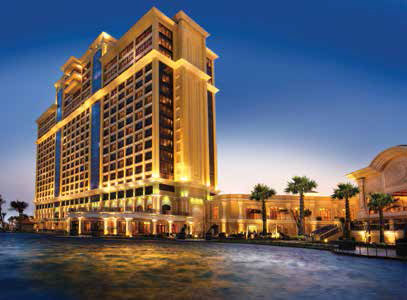
Mr McCamley joined ACDL last October amid a behind-the scenes flurry that included a $20 million investment from Chien Lee, a founder of Macau junket promoter Iao Kun Group and China’s 7 Days hotel chain that’s in 300 cities across Asia. Mr Chien has helped ACDL connect with mainland China travel agencies to lure tour groups. Despite territorial disputes in the South China Sea that spurred anti-Chinese riots across Vietnam last May and left up to 21 dead and hundreds of factories damaged, China accounted for nearly 2 million of Vietnam’s 7.9 million visitors last year, more than double the arrivals from second place South Korea.
In September, privately held ACDL appointed Stephen Shoemaker, its longtime president and chief financial officer, as CEO. At the same time, ACDL received a $50 million equity injection from majority shareholder Harbinger Capital, headed by Philip Falcone. Mr Shoemaker, who joined ACDL when Ho Tram “was still a PowerPoint,” has a close relationship with Mr Falcone, who stepped down as head of Wall Street investment fund Harbinger Group in November, allowing him to give more attention to ACDL, executives say.
BEACH ED WHALES
ACDL is supposed to develop five resorts on its 164 hectares (405 acres), including 2.2 kilometers of beachfront to fulfill its $4 billion investment requirement. One more resort can have a full casino, and others can have electronic gaming if they’re certified five-star properties, according to the government’s decree on slot parlors issued in 2013. US regional gaming operator Pinnacle Entertainment agreed to manage Ho Tram’s second casino resort in 2011 as part of investing $110.6 million for a 26% stake in ACDL. Pinnacle, currently considering a REIT spinoff and GLPI buyout offer, has since written off its investment and seen its share of ACDL diluted, but it could still participate in Ho Tram’s development.
The Grand says casino revenue has risen to record levels virtually every month since Mr McCamley joined. Gaming revenue currently skews 80/20 to the VIP side, “but we have seen fast growth in the mass gaming areas in the past few months, so the gap between mass and VIP is narrowing quite quickly,” Mr McCamley says. Play is in US dollars, and commission rates are significantly higher than Macau’s 1.25% though he wouldn’t give a number. VIP betting starts at $1,000 with baccarat table differentials up to $100,000, “the highest in Vietnam,” according to Mr McCamley. The Grand works regularly with 20 junket promoters, known officially as independent tour operators or ITOs. With his extensive networks in mainland China and Macau, Chien Lee has reportedly introduced dozens of VIP acquaintances to The Grand, and from its early days, the resort has had ITOs specializing in Japanese, Korean and Viet Kieu players resident in Vietnam and overseas. “We are now looking to expand that by developing new partnerships in other markets, notably including Thailand, Japan and Taiwan,” Mr McCamley says.
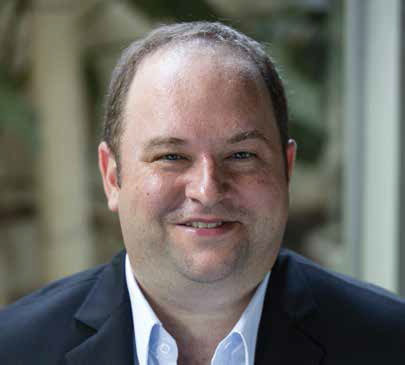
In an interview last October, Mr Shoemaker forecast The Grand operations would turn profitable early this year. But company executives won’t say whether that hurdle has been cleared. Mr Klebanow says a key issue, apart from the ban on local play, is that The Grand doesn’t have enough rooms to support its casino.
ACDL hopes to remedy that by building the planned second tower of The Grand that would lift total keys to 1,100. Piling work was completed earlier, and contractor Coteccons, builder of the luxurious initial tower, has been signed for construction, which could be completed within 12 months of its start. ACDL has chosen a condominium model for the project that entitles investors to a number of room nights and portion of room rental income.
“The reception to the opportunity to allow people in Vietnam to own a piece of the Ho Tram Strip has been welcomed by the market here, so we are committed to this model as the way forward for the next tower of The Grand,” Mr Pine says. The current phase may also include villas along The Bluffs and beach, and if the ownership format proves successful, could pave the way to financing build out of the rest of resort.
Ho Tram’s investment certificate, the government authorization for the project, includes a timeframe for development. The second hotel tower is the next investment milestone, and a government progress review is due this year. Mr Pine says failure to meet investment targets wouldn’t mean forfeiting the gaming license but could lead to additional requirements for ACDL. An industry insider terms the Ho Tram case “critical” as a barometer of the government attitude toward lagging IR development. So far, Vietnam authorities have restricted actions to private pressure without taking punitive steps.
GEOGRAPHICAL EDGE
Ho Tram still faces the issue of distance. Road improvements have nearly halved the driving time from HCMC’s Tan Son Nhut Airport to around two hours, with more upgrades underway. The airport, a remnant of the American war effort in Vietnam, is due for replacement, with Long Thanh in Dong Nai province, an hour from Ho Tram, a potential site.
Even as things stand now, Mr Pine believes Ho Tram has geographical advantages over Vietnam’s other four IR sites in locations he calls “remote and underdeveloped,” such as remote Phu Quoc and Van Don island near the border with China’s Guangxi Province. To support IR development, these areas need major infrastructure improvements that, Mr Pine points out, will happen at the government’s pace, not the investors’. “In comparison, the Ho Tram Strip is significantly closer to Ho Chi Minh City, the nation’s biggest population center, and is in a much better position regarding both existing and future infrastructure.”
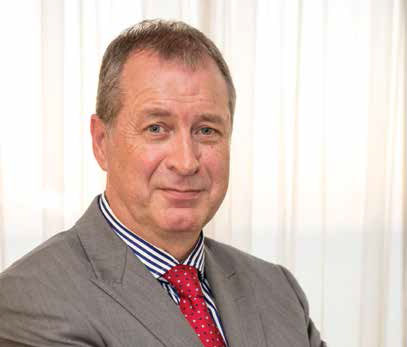
That also makes Ho Tram an excellent candidate for any local play initiative. Alterations to the blanket ban are expected in the government’s long-awaited Casino Decree. Slot clubs got their decree in 2013, codifying and clarifying their regulatory framework. The casino version has been awaited since.
“We have seen considerable consistent momentum to completing a decree which would specifically regulate casinos and particularly provide a formal framework for large-scale integrated resort-style casinos,” Mr Pine says. “The government is serious in its efforts to put in place a regulatory and fiscal environment that makes sense and balances its objectives, which very much does include attracting quality investment.” Mr Pine thinks the decree could be issued this year and would likely provide “the first basis for consideration of local gaming to be allowed.”
Officials claim the government annually loses $800 million in potential tax revenue needed to close budget deficits due to Vietnamese citizens’ play overseas, where social consequences of gaming are not addressed. Gaming “could be better controlled and regulated should the current laws be amended to allow locals access to international standard gaming facilities such as those we have at The Grand,” Mr Pine says.
“The view around casino gaming has been evolving significantly at all levels of government,” he says regarding local play. “It is our view that the relevant government officials are very much focused on the question of ‘how?’ which strongly indicates it is now more a question of when than if.”
On the when side, the Finance Ministry plans to submit the draft decree to Prime Minister Nguyen Van Tian in October, with potential approval this year, Morgan Stanley said in a recent report on global gaming. Others forecast the decree and any other major gaming regulation progress will be delayed until after next January’s Communist Party Congress, where new leadership is expected to be chosen. Changes at the top of Vietnam’s ruling elite could produce swift action on casinos, or set the stage for further delays.
PICKING WINNERS
How to allow local gaming remains an ideological and practical dilemma for Vietnam’s communist rulers. Conventional wisdom says the authorities are considering allowing players that meet a financial test to play at a single property on a trial basis. Financial requirements could include wealth or income minimums, or tax payment receipts. Suggestions have been made that the government might accept other documentation such as the APEC Travel Card, though the card doesn’t have an explicit financial component.
In addition to or in place of the financial requirement, Vietnam could opt for a Singapore-style entry tax, likely at a lower rate than Singapore’s S$100 ($80). If Vietnam imposed a fee proportionate in terms of GDP per capita—Singapore at $64,584, Vietnam at $2,589, according to World Bank 2013 estimates in purchasing power terms—the levy would be a mere $3.20. Based on total national GDP, the equivalent fee would be $40. The government could also levy additional gaming taxes on casinos hosting local play.
Deciding where locals can play will also be sensitive. If the government opts for a single trial site, investment level would be an obvious criterion, rewarding the operator with the largest commitment. Ho Tram would win that race. However, unlike most casinos in Vietnam, ACDL has no local ownership, which could engender political opposition. Insiders suggest that rather than designating a single site, authorities might opt to offer local play to any casino that demonstrates a certain level of investment or fulfills other government requirements, initially limiting eligibility to a single site, but encouraging others to meet the criteria.
Or Vietnam could adopt a different model altogether. “It could be like Korea, one place for local players that’s hard to get to,” Donaco International Executive Director Ben Reichel suggests. Donaco owns and operates Aristo International casino hotel on the border with China’s Yunnan Province. Some mooted IR sites would qualify as sufficiently remote, though it would take years to develop a gaming property and make it accessible. Mr Reichel also believes that any form of local play will benefit all operators, even if it attracts international big names as potential competition into the market.
While moving slowly on the Casino Decree, the government decisively raised taxes. From 1st January, the gaming tax rate will rise to 35% from 30%. “High gaming taxes are never a good idea for casinos that are restricted to foreign players only,” The Grand’s Mr McCamley says. “It’s a very competitive market, high tax rates means it’s very difficult to be competitive when formulating incentive programs designed to attract foreign players.” Southeast Asian rivals Singapore, the Philippines and Cambodia have far lower base gaming tax rates.
Vietnam’s increase will be accompanied by elimination of the 10% levy on winnings above $500, due from players but paid by casinos as a fraction of cash out, and reduction of the corporate income tax rate to 20% from 22%. However, Vietnam’s effective gaming tax rate isn’t as punishing as the nominal rate suggests. Unlike Macau, Vietnam allows casinos to deduct commission expenses from revenue before paying taxes, so the effective tax rate for most casinos is in the low- to mid-teens. The new rates will bump up tax bills two or three percentage points, depending on how much VIP business a casino does and its commission rates. Not crippling, but money off the bottom line nevertheless.
For successful IR development, “Vietnam has got to get out of its own way,” Mr Klebanow says. “If the government got out of the way, it would be a super regional market, $4 billion with local players.” Until then, investors will find it hard to deliver the family of IRs Vietnam says it wants.
Editor at large Muhammad Cohen also blogs for Forbes on gaming throughout Asia and wrote Hong Kong On Air, a novel set during the 1997 handover about TV news, love, betrayal, high finance and cheap lingerie.






